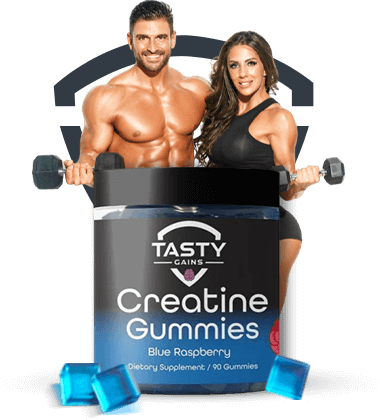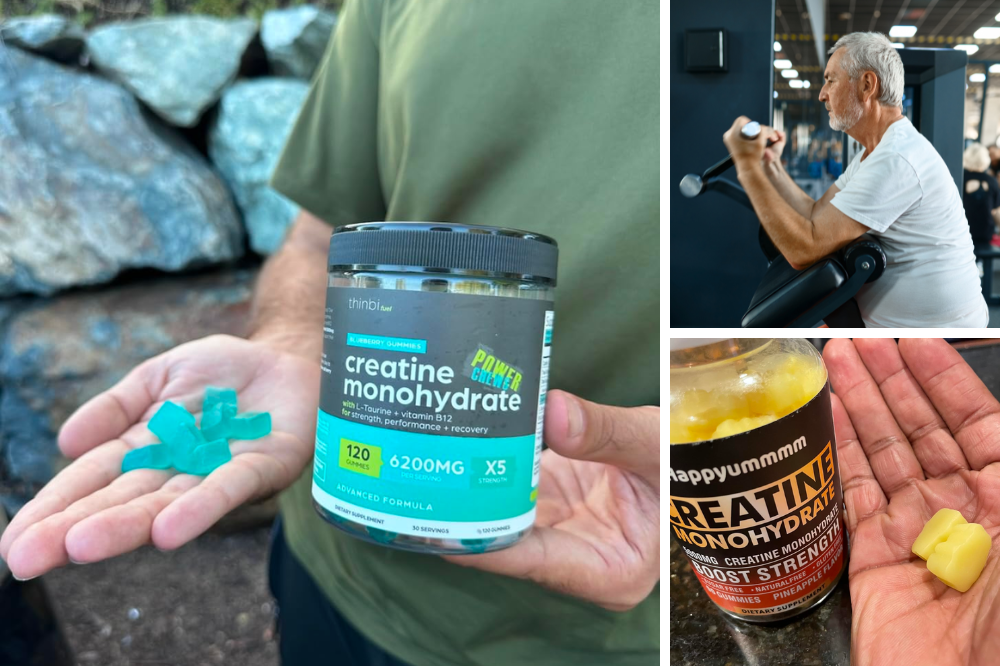Creatine is one of the most popular and widely researched dietary supplements in the world of sports and fitness. Known for its ability to enhance muscle mass, strength, and exercise performance, creatine supplementation is favored by athletes, bodybuilders, and fitness enthusiasts alike. But beyond its well-known benefits for muscle growth, creatine offers a range of other advantages that make it a valuable addition to any supplement regimen. In this article, we'll explore the various benefits of taking creatine and why it has become a staple in sports nutrition.
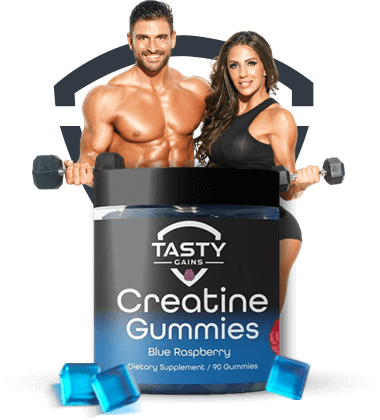
Understanding Creatine: A Natural Substance
Creatine is a naturally occurring substance found in small amounts in certain foods like red meat and fish. It is also synthesized in the human body from certain amino acids, such as arginine and glycine, primarily in the liver, kidneys, and pancreas, and stored in skeletal muscle. Creatine plays a crucial role in energy production by replenishing adenosine triphosphate (ATP), the primary energy currency of cells, especially during high-intensity exercise. This ability to quickly regenerate ATP makes creatine an essential compound for athletes and those engaged in resistance training.
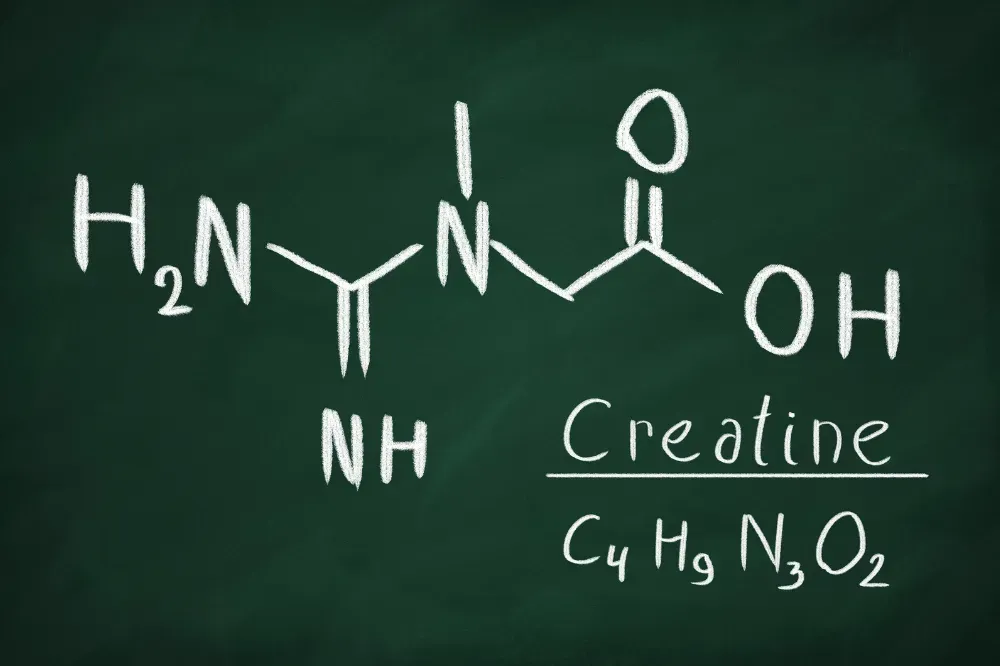
Muscle Mass and Muscle Growth
One of the most significant benefits of taking creatine supplements is their ability to increase muscle mass and promote muscle growth. Creatine monohydrate is the most common and well-studied form of creatine supplement, known for its effectiveness in increasing muscle mass. Creatine supplementation has been shown to increase the water content in muscle cells, leading to a phenomenon known as "cell volumization." This increase in muscle cell volume can contribute to greater muscle size and improved muscle performance during workouts. Additionally, creatine may enhance protein synthesis, further supporting muscle growth and strength gains.
Enhanced Athletic Performance
Creatine is widely recognized for its ability to improve athletic performance, particularly through the use of creatine supplements in activities that require short bursts of high-intensity effort, such as weightlifting, sprinting, and high-intensity interval training (HIIT). By increasing the body's creatine phosphate stores, creatine supplementation allows for faster regeneration of ATP, which in turn enables athletes to perform more repetitions, lift heavier weights, and recover more quickly between sets. This improved performance can lead to greater gains in strength, power, and overall fitness.

Improved Exercise Performance
In addition to enhancing athletic performance, creatine also plays a role in improving overall exercise performance. Whether you're engaging in endurance activities, resistance training, or high-intensity workouts, creatine supplementation can help you perform at a higher level. The increased ATP availability provided by creatine allows for more sustained muscle contractions, reducing fatigue and enabling longer and more intense workouts.
Benefits for Brain Health and Cognitive Function
Beyond its well-known benefits for physical performance, creatine also offers potential advantages for brain health and cognitive function. Research suggests that creatine supplementation may help improve cognitive performance, particularly in tasks that require short-term memory, quick thinking, and mental clarity. This is especially relevant for individuals who are under mental stress or are involved in activities that require quick decision-making.

Creatine and Brain Disorders
Creatine's role in brain health extends to its potential therapeutic benefits for certain neurological conditions. Studies have explored the use of creatine supplementation in the treatment of neurodegenerative diseases such as Parkinson's disease, Huntington's disease, and amyotrophic lateral sclerosis (ALS). While more research is needed, some evidence suggests that creatine may help protect brain cells, improve brain function, and reduce symptoms associated with these conditions.
Muscle Recovery and Reduced Muscle Cramping
Creatine supplementation has been shown to aid in muscle recovery following intense exercise. By replenishing the body's creatine stores, creatine helps to reduce muscle damage and inflammation, leading to faster recovery times and less muscle soreness. Additionally, creatine may help reduce the risk of muscle cramping, which can be a common issue for athletes and those engaged in strenuous physical activity.

Supporting Bone Health
While creatine is primarily known for its effects on muscle and athletic performance, it may also play a role in supporting bone health. Some studies suggest that creatine supplementation combined with resistance training can increase bone mineral density, particularly in older adults. This is especially important for individuals at risk of osteoporosis or those looking to maintain strong and healthy bones as they age.
Potential Benefits for Older Adults
As we age, maintaining muscle mass, strength, and overall physical function becomes increasingly important. Creatine supplementation may offer significant benefits for older adults by helping to preserve lean muscle mass, improve strength, and enhance mobility. Additionally, creatine's potential benefits for brain health and cognitive function can be particularly valuable for aging individuals, as it may help combat age-related cognitive decline.

Weight Gain and Body Composition
While creatine is often associated with weight gain, it's important to understand that this gain is typically due to an increase in muscle mass rather than fat. Creatine's ability to enhance muscle growth and strength can lead to an increase in overall body weight, but this is generally seen as a positive effect for those looking to improve their body composition. It's worth noting that some individuals may experience temporary water retention when starting creatine supplementation, but this effect usually subsides with continued use.
Creatine and Energy Production
Creatine's role in energy production is one of its most well-known benefits. By increasing the availability of creatine phosphate in muscle cells, creatine supplementation allows for faster and more efficient ATP production. This increased energy availability is particularly beneficial during high-intensity activities, where rapid energy turnover is required. The result is improved performance, greater endurance, and the ability to push through challenging workouts.

How Much Creatine Should You Take?
Regarding how much creatine to take, the most common approach is to start with a "loading phase" of 20 grams of creatine per day, divided into 4-5 servings, for the first 5-7 days. This is followed by a maintenance dose of 3-5 grams per day. Some individuals may choose to skip the loading phase and start with the maintenance dose, which is also effective, although it may take longer to see results. It's important to follow the recommended dosing guidelines and consult with a healthcare provider, especially if you have any underlying health conditions.
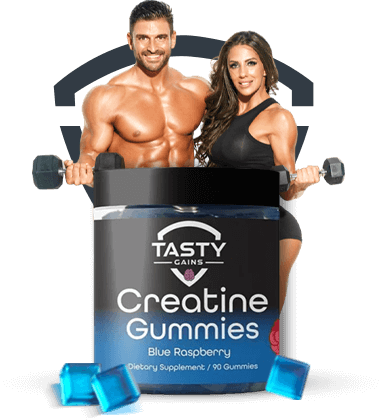
Creatine and Kidney Function: Addressing Concerns
One of the most common questions about creatine supplementation is whether it affects kidney function. While there have been concerns that high doses of creatine could strain the kidneys, research has shown that creatine is safe for healthy individuals when taken at recommended doses. However, individuals with pre-existing kidney disease or kidney disorders should consult with a healthcare provider before taking creatine supplements.
Creatine Supplementation and Blood Sugar Levels
There is some evidence to suggest that creatine supplementation may have a positive effect on blood sugar levels, particularly in individuals with insulin resistance. Creatine may enhance the uptake of glucose into muscle cells, improving insulin sensitivity and helping to regulate blood sugar levels. This potential benefit makes creatine an interesting supplement for those with concerns about blood sugar management.

Creatine for Strength Training and Resistance Training
Creatine's ability to enhance muscle strength and power makes it a valuable supplement for those engaged in strength training and resistance training. Whether you're lifting weights, performing bodyweight exercises, or participating in other forms of resistance training, creatine can help you achieve better results by increasing your ability to lift heavier weights, perform more repetitions, and recover more quickly between sets.
Effects of Creatine Supplementation on Lean Muscle Mass
One of the key benefits of creatine supplementation is its ability to increase lean muscle mass. By promoting muscle growth, enhancing protein synthesis, and improving workout performance, creatine helps individuals build and maintain lean muscle tissue. This increase in lean muscle mass not only contributes to a more muscular physique but also supports overall metabolic health.

Creatine and Muscle Performance
Creatine supplementation has been shown to improve muscle performance in various ways. By increasing the availability of ATP, creatine allows for more powerful muscle contractions, greater endurance, and improved performance in both aerobic and anaerobic activities. Whether you're running, cycling, swimming, or lifting weights, creatine can help you perform at your best.
Brain Function and Cognitive Performance
In addition to its benefits for physical performance, creatine also plays a role in supporting brain function and cognitive performance. Research suggests that creatine supplementation may enhance mental clarity, improve memory, and reduce mental fatigue, particularly during tasks that require intense concentration or quick thinking. This makes creatine a valuable supplement not only for athletes but also for students, professionals, and anyone looking to support brain health.

Creatine and Adverse Effects: Separating Fact from Fiction
While creatine is generally considered safe for most individuals, it's important to be aware of potential side effects. Some people may experience water retention, muscle cramping, or digestive issues when taking creatine supplements. However, these side effects are usually mild and can be minimized by following the recommended dosing guidelines and staying well-hydrated. Concerns about more serious adverse effects, such as kidney damage, have been largely debunked by scientific research, which has shown that creatine is safe for healthy individuals.
Creatine Use Among Professional Athletes
Creatine is one of the most widely used supplements among professional athletes, and for good reason. Its ability to enhance muscle strength, power, and endurance makes it an invaluable tool for those competing at the highest levels of sport. Whether you're a professional athlete or a recreational fitness enthusiast, creatine can help you achieve your performance goals.

Conclusion: The Benefits of Taking Creatine
In conclusion, the benefits of taking creatine are numerous and well-supported by scientific evidence. From increasing muscle mass and strength to enhancing athletic performance and supporting brain health, creatine is a versatile and effective supplement that can benefit many individuals. Whether you're looking to improve your physical performance, support cognitive function, or simply maintain overall health, creatine is a valuable addition to any supplement regimen. As with any supplement, it's important to follow recommended dosing guidelines and consult with a healthcare provider if you have any underlying health conditions.
